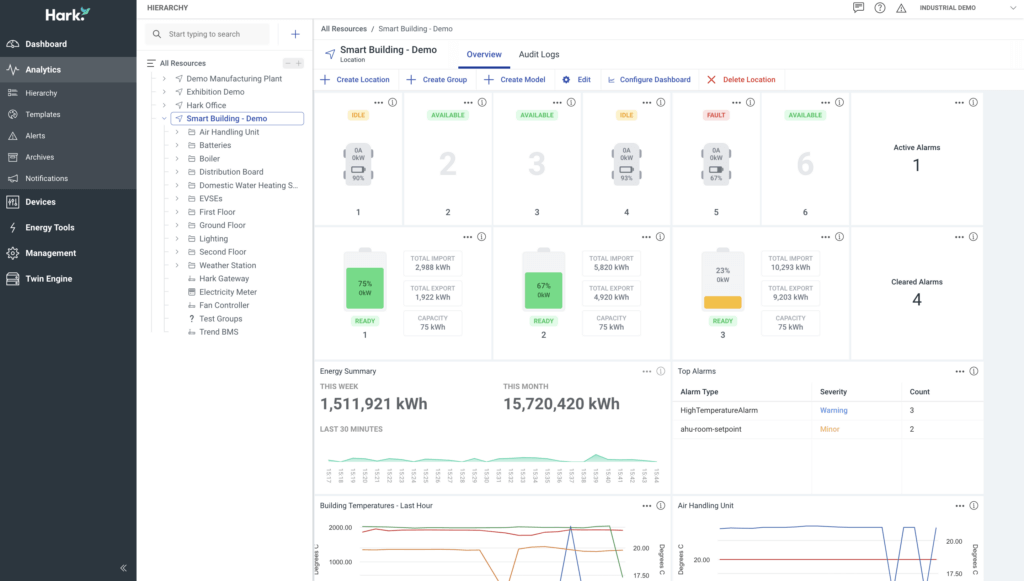Home › Smart Buildings › Benefits of smart buildings for facilities managers
Contents
The benefits of smart buildings for facilities managers
Smart buildings provide a heap of benefits for facilities managers. Smart buildings can help reduce the workload and the cost of managing a building. By automating and optimising building systems, such as heating, ventilation, and air conditioning, smart buildings can reduce the need for manual intervention and maintenance, leading to lower maintenance, energy and operational costs.

Secondly, smart buildings can improve the efficiency and reliability of building services. By collecting and analysing data from sensors and IoT devices, facilities managers can identify trends, patterns, and inefficiencies, and take corrective actions to improve building performance and reduce downtime. This can lead to increased revenue, adds value to facilities management business and helps deliver additional customer satisfaction.
Smart buildings can also enhance the safety and security of building occupants. With advanced security systems and surveillance cameras, smart buildings can detect and prevent potential threats, such as intruders, fires, and gas leaks. This can all be done by using machine learning alongside security systems, so as not to breach the privacy or trust of occupants. This can provide peace of mind and protect occupants from harm, as well as prevent legal liabilities and damages.
Furthermore, buildings equipped with IoT can provide valuable data and insights that can be used to optimise the building efficiency, maintenance and operations. By collecting and analysing data from sensors and IoT devices, facilities managers can identify and prioritise maintenance tasks, optimise inventory management, and reduce waste and emissions. This can all be enabled with solutions such as The Hark Platform.
IoT is a market differentiator for FM's
As aforementioned, smart buildings can provide a competitive advantage for any facilities management business. By offering smart building services to their customers, facilities managers can differentiate themselves from their competitors and attract/retain clients, as well as generate more revenue and increase profitability.
The adoption of smart buildings is crucial for facilities management businesses, as it can help reduce costs, improve efficiency and reliability, enhance safety and security, and provide valuable data and insights. By embracing smart technologies, facilities managers can provide better services to their customers, and stay ahead of the curve in a rapidly changing industry.
